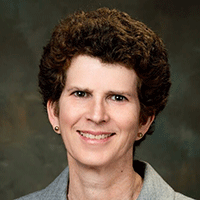
Michele Miller
Professor and Associate Dean of Engineering
Campbell University
Michele Miller is the current Chair of ASME's Committee on Engineering Education. Prior to joining Campbell in 2017, she was a mechanical engineering professor at Michigan Tech for 22 years. She has been an advocate for project-based curricula and has served ABET as a program evaluator and team chair. She teaches classes on manufacturing and mechanics. She has performed research in engineering education, micro-electromechanical systems, and precision machining. She received a BS degree from Duke University and MS and PhD degrees from North Carolina State University, all in mechanical engineering.
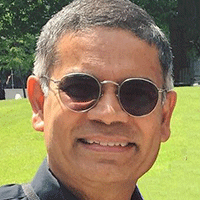
Rungun Nathan
Professor and Program Chair
Mechanical Engineering Department
Penn State Berks
Rungun Nathan joined the faculty at Penn State Berks in 2007 as an assistant professor, was promoted in 2012 to associate professor and became full in 2021. He has over 25 combined years of increasing responsibilities in industry and in academia, including at the Centre for Development of Telematics (C-DOT), a telecommunications technology arm of the Indian government, the Indian Institute of Science (IISc.), Bangalore, and Villanova University, PA. Nathan received his BS from the University of Mysore, a postgraduate diploma from the Indian Institute of Science, an MS from Louisiana State University, and a PhD from Drexel University. He worked in electronic packaging in C-DOT and then as a scientific assistant in the robotics laboratory at IISc. in Bangalore, India, and as a postdoc at the University of Pennsylvania in haptics and virtual reality. His research interests are in the areas of brain traumatic injury, unmanned vehicles, particularly flapping flight and Frisbees, mechatronics, robotics, MEMS, virtual reality, and haptics, as well as teaching with technology. He has ongoing research in brain traumatic injury, flapping flight, frisbee flight dynamics, lift in porous material, and wound therapy. He is an active member of APS (DFD), ASEE, ASME, and AGMA, and is a reviewer for several ASME, IEEE, ASEE, and FIE conferences and journals. He is co-editor for ASEE publication Computers in Education. He also serves as a Program Evaluator for ABET. He has served as one of the organizers for MEED since 2021.
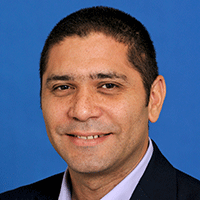
Orlando M. Ayala
Associate Professor of Engineering Technology
Old Dominion University
Dr. Ayala received his BS in Mechanical Engineering with honors (Cum Laude) from Universidad de Oriente (Venezuela) in 1995, MS in 2001 and PhD in 2005, both from University of Delaware (USA). Dr. Ayala is currently serving as Associate Professor in the Engineering Technology Department at Old Dominion University. Prior to joining ODU in 2013, Dr. Ayala spent 3 years as a Postdoc at the University of Delaware where he expanded his knowledge on simulation of multiphase flows while acquiring skills in high-performance parallel computing and scientific computation. Before that, Dr. Ayala held a faculty position at Universidad de Oriente where he taught and developed courses for a number of subjects such as Fluid Mechanics, Heat Transfer, Thermodynamics, Multiphase Flows, Hydraulic Machinery, as well as different Laboratory courses. Additionally, Dr. Ayala has had the opportunity to work for a number of engineering consulting companies, which have given him an important perspective and exposure to the industry. He has been directly involved in at least 20 different engineering projects related to a wide range of industries. Dr. Ayala has provided service to professional organizations such as ASME, since 2008 he has been a member of the Committee of Spanish Translation of ASME Codes. Dr. Ayala has published over one hundred journals and peer-reviewed conference papers. His work has been presented in several international forums in Austria, the USA, Venezuela, Japan, France, Mexico, and Argentina. Dr. Ayala has an average citation per year of all his published work of 42.80.
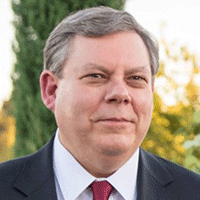
Karim H. Muci-Kuchler
Professor and Mechanical Engineering Academic Program Coordinator
Ingram School of Engineering
Texas State University
Before joining Texas State University, Dr. Karim Muci-Kuchler was a Professor of Mechanical Engineering and Director of the Experimental and Computational Mechanics Laboratory at the South Dakota School of Mines and Technology. He received his Ph.D. in Engineering Mechanics from Iowa State University in 1992. He has taught a wide variety of undergraduate and graduate engineering courses and his main interest areas include Engineering Education, Computational Mechanics, Product Design and Development, and Solid Mechanics. Dr. Muci-Kuchler is a Fellow of the American Society of Mechanical Engineers, co-author of a book about Adaptive Meshing with Boundary Elements, and author or co-author of over 85 publications. The latter include papers related to engineering education, the boundary element method, the friction stir spot welding process, and surrogate perforating projectile wounds, among others. He is an ABET PEV, has served as session chair or co-chair at international conferences, has reviewed papers for technical journals and conference proceedings, has served as panelist for the National Science Foundation (NSF), and has done consulting for industry in Mexico and the US.
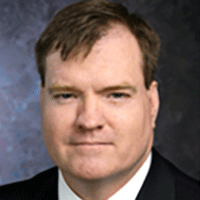
Elliott Bryner
Associate Professor & Interim Chair
Department of Mechanical Engineering
Embry-Riddle Aeronautical University
Elliott Bryner is Director of the Propulsion Laboratory and Rocket Test Complex. Elliott earned his BS in Mechanical Engineering from Arizona State University and his Ph.D. in Mechanical and Aerospace Engineering from the University of Virginia. Before joining Embry-Riddle in 2016 he worked for more than ten years in the propulsion and energy industry. He has earned multiple awards and recognitions including the NASA Glenn Research Center Assistant Director's Award and Embry-Riddle Prescott campus outstanding faculty of the year.
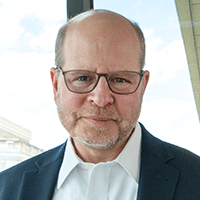
Jonathan Cagan
David and Susan Coulter Head of Mechanical Engineering
George Tallman and Florence Barrett Ladd Professor
Carnegie Mellon University with an appointment in Design
Jonathan Cagan served as Interim Dean of the College of Engineering and Special Advisor to the Provost. Cagan co-founded the Integrated Innovation Institute for interdisciplinary design education at CMU, bringing engineering, design, and business together to create new products and services. Cagan's research focuses on design automation and methods, problem solving, and medical technologies. His work merges AI, machine learning, and optimization methods with cognitive- and neuro-science problem solving. A Fellow of the American Society of Mechanical Engineers, Cagan has been awarded the ASME Design Theory and Methodology, Design Automation, and Ruth and Joel Spira Outstanding Design Educator Awards. He is also a Fellow of the American Association for the Advancement of Science. A registered Professional Engineer, Cagan received his PhD from UC Berkeley, and has been on the faculty at CMU since 1990.
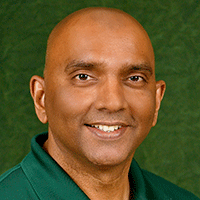
Harish Cherukuri
Chair of Mechanical Engineering and Engineering Science
University of North Carolina Charlotte
Harish P. Cherukuri was also a Senior Fulbright-Nehru research fellow to India in 2010-11. He obtained his PhD from the Department of Theoretical and Applied Mechanics at the University of Illinois at Urbana-Champaign in 1994. His research interests are in computational mechanics, modeling of material removal and metal-forming processes, high-temperature behavior of super-alloys, particle-based methods, and the application of machine learning in manufacturing and materials science. At UNC Charlotte, he usually teaches courses such as Engineering Analysis, Computational Methods for Engineers, Plasticity, and Finite Element Methods.
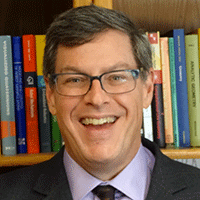
Pierre Larochelle
Department Head of Mechanical Engineering
South Dakota School of Mines & Technology
Pierre Larochelle previously, he served as an Associate Dean and Professor of Mechanical Engineering at the Florida Institute of Technology. His research focuses on the design of complex robotic mechanical systems and enabling creativity and innovation in design. He is the founding director of the RObotics and Computational Kinematics INnovation (ROCKIN) Laboratory, has over 100 publications, holds three US patents, and serves as a consultant on robotics, automation, machine design, creativity & innovation, and computer-aided design. In 2012, at NASA's request, he created a 3-day short course on Creativity & Innovation. This course has been very well received, and he has taught it exclusively more than 30 times at NASA’s various centers and laboratories across the nation to more than 650 of NASA’s scientists and engineers. He currently serves as the Chair of the U.S. Committee on the Theory of Mechanisms & Machine Science and represents the U.S. in the International Federation for the Promotion of Mechanism & Machine Science (IFToMM) (2016-24). He serves as a founding Associate Editor for the ASME Journal of Autonomous Vehicles and Systems (2020-26). Moreover, he serves on the Executive Committees of ASME's Department Heads Committee and of ABET's Engineering Accreditation Commission (EAC). He serves as an ABET Accreditation Visit Team Chair. He has served as Chair of the ASME Design Engineering Division (2018-2019) and the ASME Mechanisms & Robotics Committee (2010-2014), and as an Associate Editor for the ASME Journal of Mechanisms & Robotics (2013-19), the ASME Journal of Mechanical Design (2005-11), and for Mechanics Based Design of Structures & Machines (2006-13). He is a Fellow of the American Society of Mechanical Engineers (ASME), a Senior Member of IEEE, and a member of Tau Beta Pi, Pi Tau Sigma, ASEE, and the Order of the Engineer.
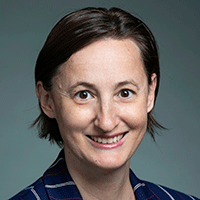
Leigh McCue-Weil
Professor and Chair
George Mason University
From June 2015-December 2018 Leigh McCue was the executive director of the American Society of Naval Engineers. Prior to that, from December of 2004 through May of 2015, she was an Assistant, then Associate Professor in Virginia Tech's Department of Aerospace and Ocean Engineering. Her research interests are in maritime robotics, nonlinear and chaotic vessel dynamics, and computational fluid dynamics, coupled with an emphasis on fostering diversity, equity, and inclusion in engineering.